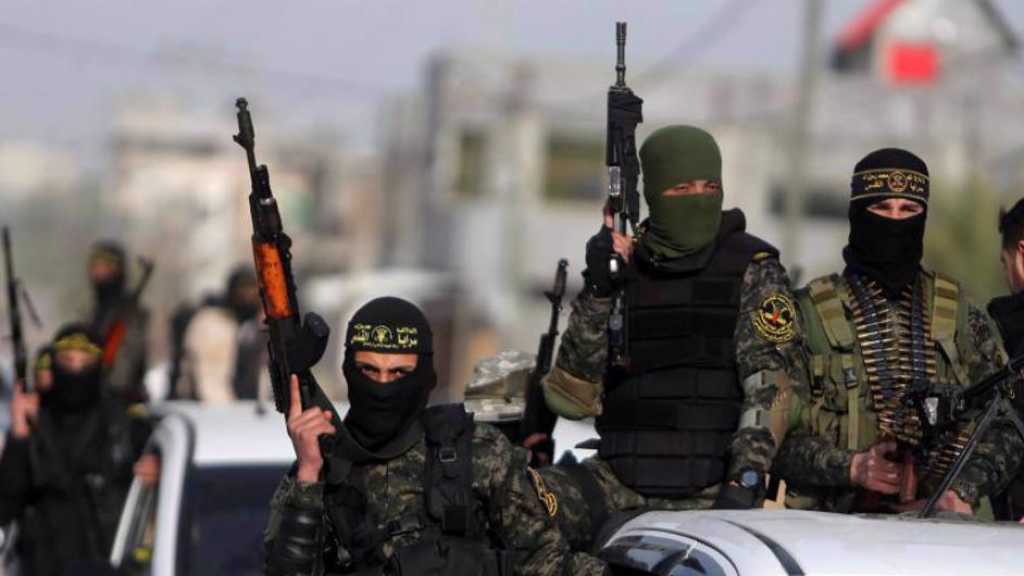
Buckling under the Weight of Surprise: ‘Israel’s’ Persistent Dilemma with Eroding Deterrence

Translatd by Staff, Al-Akhbar Newspaper
“Israel’s” most recent aggression against the Gaza Strip exposed the unexpected effects of a decision by the Palestinian resistance not to respond immediately and mechanically to the assassination of three Al-Quds Brigades leaders. The military and political establishments in Tel Aviv appeared confused by the new, unprecedented tactic adopted by the resistance.
Meanwhile, developments in the field did not follow “Israel’s” script that formed the basis of its decision to carry out the assassinations. Instead, southern “Israeli” settlements and its entire coastline up to Tel Aviv were gripped by a state of terror. Tel Aviv had opened its bomb shelters earlier in the week.
The “calm” that followed the operation quickly turned into pressure on the “Israeli” population and political leadership. It gave way to confusion at the official level about how to address the situation.
If “Israeli” politicians instructed settlers to leave their shelters and carry on with their daily routines, they risked exposing them to a sudden missile strike that could have serious repercussions. On the other hand, if they recommended staying in the shelters and extending the hindrance to daily life without missiles being fired, they would have to answer questions about the time frame.
The enemy leadership feared that this would continue until Flag March, which is held on the anniversary of the occupation of Al-Quds in 1967, and according to the “Israeli” calendar falls on May 18.
Tel Aviv’s assessment of how to end this purgatory situation led to the conclusion that it was necessary to put a stop to the resistance’s success in garnering moral, political, and economic gains due to the state of widespread paralysis in “Israel”, without firing a single missile.
Hence, the decision to resume raids on the Gaza Strip, which prompted the resistance to respond with missiles that targeted Tel Aviv and its surrounding areas.
This constituted a practical acknowledgment on the part of the “Israeli” leadership that the calm in the aftermath of the assassination was a new tactic aimed at keeping “Israel” in a state of alert and paralysis prior to a Palestinian response.
The messages of the Palestinian response
The statement issued by the Joint Operations Room revealed that the response, Operation Revenge of the Free, was an expression of all the factions.
As such, the enemy's attempt to create a rift between the factions was thwarted. The missiles fired by the Al-Quds Brigades are also a demonstration of its ability to limit the consequences of the martyrdom of three of its most important military leaders while executing an organized military response. It refuted the theory that the delayed response is the result of confusion, emptiness, and the disruption of the command and control system.
Furthermore, the missiles reaching Tel Aviv and its surroundings dispelled any illusions about the deterrent effects of the assassination, given that every assassination of a political or military leader aims first to punish and deter the targeted person and the party to which he belongs and then to send a message to the rest that they are in the crosshairs if they continue to resist.
However, the response in the direction of Tel Aviv, which constitutes a transgression of the traditional ceiling confined to the settlements of the Gaza envelope, demonstrated the strength of the resistance’s determination and willpower. These are key factors that the enemy should read well, as they contribute to establishing concepts and estimates while abolishing others.
In any case, it’s important to remember that “Israel”, which by certain standards constitutes a regional power with its technological, military, and destructive capabilities chose the weaker arena, namely the Gaza Strip, to restore the image of its deterrence that had been eroded by the resistance.
It deliberately limited its targeting to the Al-Quds Brigades for a variety of reasons, including an attempt to neutralize Hamas on the ground.
However, “Israel's” long-term goal, according to Netanyahu's former national security adviser Meir Ben-Shabbat is to "disarm the resistance and neutralize it at the security level and for the Gaza Strip to be under the control of a strong entity that recognizes ‘Israel’."
If this goal, as Ben-Shabbat also acknowledges, is “unrealistic” in light of the existing equation, then “‘Israel’ has two options in dealing with security challenges,” each of which carries its share of risks for the entity.
The first is the occupation of the Gaza Strip and the replacement of the government through a broad and deep military operation that has direct and indirect exorbitant costs and an unclear time frame. Complicating things further is the fact that there is no other party that can assume leadership and govern the territory.
The second option is known as the “rounds”. It involves maintaining calm through deterrence achieved during numerous rounds of fighting while making an effort to reduce the duration of each round. It also includes the use of pressure tools and incentives during the days of calm, which increase the cost of losing and make attacks on “Israel” useless. This is the approach adopted by Tel Aviv at the current stage, and it is not expected to change after this round of fighting.
Ben-Shabbat admits that this strategy’s weak link stems from the fact that “the calm that prevails in the aftermath of each round will always be temporary and fragile.”
The overview of the situation presented by Netanyahu's former adviser is a tacit acknowledgment of “Israel's” strategic failure in dealing with the resistance in Gaza and its narrow options. In other words, Tel Aviv is compelled to adopt a risk management policy and choose the least dangerous one.
This in itself is a strategic achievement for the resistance and its supporters because it imposes equations on “Israel” that were not part of the mindset of its former and current leaders. Instead, it creates a reality that robs the entity of any sense of security while paralyzing daily life.
Comments



